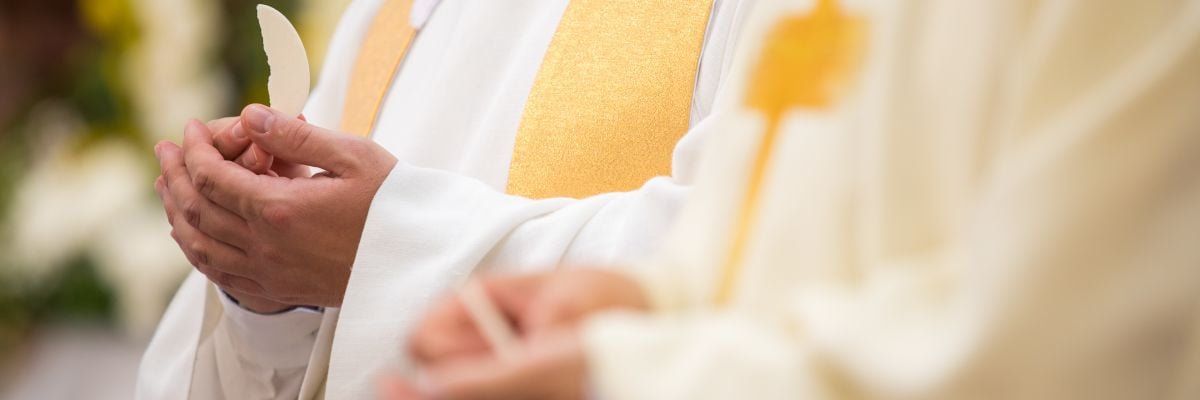
Question:
Answer:
The Mass holds the place it does in Catholic worship because it makes present anew Jesus’s one sacrifice of Calvary, which culminated in everlasting glory in the heavenly sanctuary at his Ascension. That one sacrifice becomes present anew sacramentally according to the order of Melchizedek, and thus the bread and wine offered become the body, blood, soul, and divinity of Jesus, the Real Presence of Christ in the Catholic Eucharist. When Jesus has deigned to become present in that manner, it automatically becomes the most important form of worship. Indeed, the Mass is the fulfilled, New Covenant Passover sacrifice, in which we both offer anew and partake of the one Lamb of God.
There are many forms of Catholic worship beside the Mass, and the celebration of the Eucharist is not the only part of the Mass. But it remains the case—and rightly so—that the Mass and the celebration of the Eucharist within the Mass are, as Vatican II put it, “the source and summit of the Christian life” (Lumen Gentium 11).


